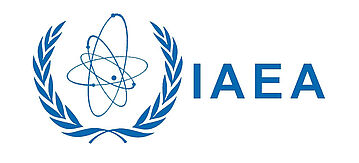International Atomic Energy Agency (IAEA)

The International Atomic Energy Agency (IAEA) was founded in 1957 as an autonomous intergovernmental organisation. It reports regularly to the United Nations General Assembly and has a duty to notify the United Nations Security Council directly if a threat to world peace has been ascertained (IAEA Statute, Article III B 4). Germany has been a member of the IAEA since its founding year 1957 and is permanently represented on its monitoring and governing body – the IAEA Board of Governors, since 1973.
All member states (178 as at September 2023) are represented at the annual General Conference. The Board of Governors meets five times a year, while the Programme and Budget Committee (PBC) and the Technical Assistance and Cooperation Committee (TACC) each convene every six months.
The focus of the IAEA’s work is nuclear technology and applications, nuclear safety and security and safeguards.
In Germany, the Federal Environment Ministry (BMUV) is lead liaison in relation to IAEA activities.
Nuclear power
The IAEA globally promotes the peaceful use of nuclear power by means of technical conferences, coordinated research contracts, services (in particular review services in the form of expert-led international missions dedicated to specific issues), databases and comprehensive documentation and publication activities.
It provides support to developing countries, for example with regard to the use of nuclear applications in the fields of medicine, water and agriculture.
Nuclear safety and security
The IAEA supports international cooperation and harmonisation in the field of monitoring by producing safety standards and recommendations for reactor safety, radiological protection, nuclear waste management, transport of radioactive substances, emergency preparedness and security of nuclear facilities and nuclear materials. It fosters the physical protection of nuclear material against misuse, for example with the aim of combating nuclear smuggling.
The Federal Environment Ministry is represented on the Commission on Safety Standards (CSS), as well as on the committees NUSSC (nuclear safety standards), WASSC (waste safety standards), RASSC (radiation safety standards), TRANSSC (transport safety standards) and EPReSC (emergency preparedness and response standards).
In addition, the Federal Environment Ministry is represented on the Nuclear Security Guidance Committee.
Safeguards
The IAEA monitors both the use and the location of nuclear materials in nuclear facilities in the framework of the Safeguards Agreement concluded with its member states. The aim is to ensure that the facilities monitored confine their activities solely to the peaceful use of nuclear energy.
